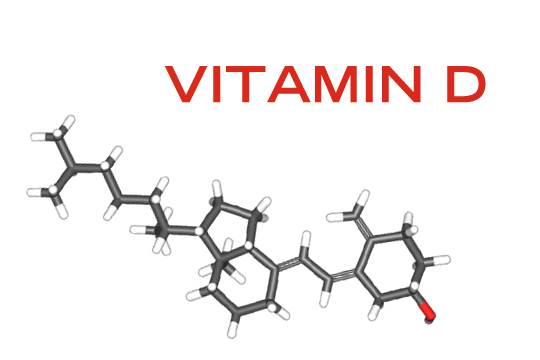
Reducing Food Waste in Foodservice
October 16, 2018 by Doreen Garelick, Dietetic Intern
Our intern Doreen attended a food waste summit for restaurants and compiled these tips to help food service operators redirect…
May 12, 2016

Vitamin D, a.k.a. the sunshine vitamin, impacts our health in a myriad of ways. Dietetic intern Charles Brewster helps clear up some confusion over what it is and discusses the debate over how much we need.
What is vitamin D?
Vitamin D is not actually a vitamin, but a steroid hormone with a very similar chemical structure to cholesterol. In addition to promoting calcium absorption, vitamin D also effects other cells and genes and vitamin D receptors have been found on cells in our brain, bones, liver, kidneys, skin and more.
The two predominant forms of Vitamin D are D2 (the synthetic form which can’t be produced by the body) and D3 (the naturally occurring form produced in skin by cholesterol receptors in response to sunlight). While dietary sources are a little scarce, some foods which contain Vitamin D are irradiated mushrooms, milk, canned fish (like salmon and sardines) and cod liver oil.
Unfortunately, vitamin D deficiency is rising worldwide and frequently goes undiagnosed. Vitamin D deficiency causes issues such as rickets and osteoporosis but may also increase risk for chronic pain, muscle aches, diabetes, cancers, and other chronic diseases.
Are you getting enough Vitamin D?
Recommendations range from 400 IU to 800 IU, however, there is debate over whether these recommendations are adequate and should be revised. Factors such as skin color, age, and current serum levels affect a person’s vitamin D production and subsequently, the need for supplemental vitamin D. According to the Vitamin D council, after 20 minutes in the sun, 20,000 IU of Vitamin D3 are produced (approximately 200 glasses of milk). Keep in mind that sunscreen can interfere with Vitamin D production, and a SPF 8 sunblock may prevent up to 95% of Vitamin D production (and any SPF greater than this may block all Vitamin D production).
So should you be concerned about your vitamin D levels? With vitamin D deficiency becoming a major issue in our society (whether due to use of sunscreen or our more indoor lifestyles), getting your levels checked by your doctor is a good first step (a normal range is between 30-70 ng/ml). If sun exposure is impossible or inconsistent, supplementation may be recommended but consult your physician before commencing any supplementation program.

October 16, 2018 by Doreen Garelick, Dietetic Intern
Our intern Doreen attended a food waste summit for restaurants and compiled these tips to help food service operators redirect food waste from landfills.
Nutrition 101

Nutrition 101
September 26, 2018 by Doreen Garelick, Dietetic Intern
Ever notice headlines about rapid weightloss? Dietetic Intern Doreen Garelick looks deeper into a recent eye-catching headline to see if there's any truth behind it.
Connect
 Follow us on Twitter
Follow us on Twitter Friend us on Facebook
Friend us on Facebook Follow us on Pinterest
Follow us on Pinterest Follow us on Instagram
Follow us on Instagram Read our Blog
Read our Blog Watch videos on YouTube
Watch videos on YouTube Watch videos on Vimeo
Watch videos on Vimeo Connect with us on Linkedin
Connect with us on Linkedin Find us on Foursquare
Find us on Foursquare
Tweets by @SPEcertifiedBlog Search
Categories
SPE Certified Newsletter
Sign up for news on the latest SPE-certified venues, events and SPE updates.
We will never share your personal information with a third party.